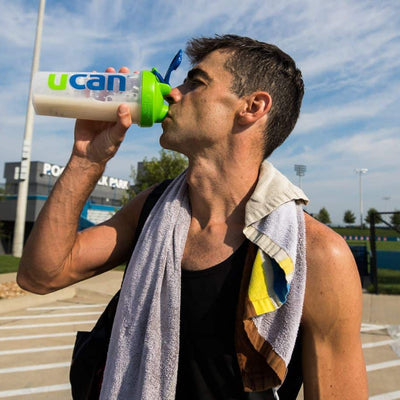Between 55 and 60 percent of an adult's body is made of water. It plays a critical role in overall health and daily processes such as digestion. Water is also what keeps you from overheating as you work out. As exercise generates heat, the body needs to find a way to dissipate that heat, which is why you sweat. It's important not to underestimate your need to replace the water your body is using, whether you are exercising or not. Dehydration happens quickly, and if you feel thirsty, then it has already started. Your job is to quench that thirst before it happens. It is also critical that you recognize the signs of dehydration, so you can deal with it before it becomes a medical emergency. For example, can dehydration cause headaches?
What Is Dehydration?
Dehydration refers to not having enough water in your body, occurring when you lose more water than you drink. You risk dehydration if you fail to replace the fluid your body uses through basic daily processes or exercise.What Causes Dehydration?
There are many potential causes of dehydration. The biggest cause is exercise. Working out causes friction in the muscle. Friction produces heat that can cause the body to overheat unless it cools down. Sweat is the mechanism used to cool your body. Although people often associate dehydration with exercise and sweating, you can also get it from diarrhea or vomiting. Certain medications can reduce your fluid levels, too. Your body might use more fluid when fighting an infection, for instance. People also sweat when they have a fever. The body temperature increases to fight the infection or cause of the fever. Sweat cools you down, but it reduces the amount of fluid in your body. Without intervention, even minor dehydration can become serious.Can Dehydration Cause Headaches?
Dehydration can cause headaches, although some tend to be more prone to them. It's unclear why some people experience headaches when they don't get enough fluid. It is a complex problem because the brain doesn't feel pain, because it doesn't have pain receptors. Headaches are a pain in the lining of the brain called the meninges. One possibility is that lack of fluid can cause pressure on that lining, triggering the pain receptors, so you feel a headache. The headache might also be a reaction to pain felt elsewhere in the body due to dehydration. A doctor with Harvard Health Publishing calls this an "exaggerated" pain response.What Does a Dehydration Headache Feel Like?
The headache pain will feel similar to other headaches and it may be mild pain or severe. You can feel that pain all over your head or in just one spot. It might be a dull pain or a sharp one. Some will complain of a pounding, throbbing headache while others have constant pain. In other words, no one symptom will tell you this headache is due to dehydration. The key indicators will likely be what other symptoms you have with the headache.Common Symptoms of Dehydration
- Dark urine
- Reduced urination
- Dizziness
- Confusion
- Dry mouth
- Fatigue
- Muscle cramps
- Loss of appetite
- Fainting
How Long Does a Dehydration Headache Last?
There is no hard and fast rule about when a dehydration headache will end. People often wonder, "How long does dehydration last," and it is different for everyone. Often, drinking fluid will end the dehydration headache in about 30 minutes. It could take hours for some, though.When Should I See a Doctor About a Dehydration Headache?
If you drink fluids and the headache doesn't stop, you should see your primary care provider. The cause may still be dehydration, but there may be an illness causing the problem. You should also see a doctor if the dehydration is severe. The signs of severe dehydration include:- Sunken eyes
- Fever
- Delirium
- Unconsciousness
- Dry or shriveled skin








